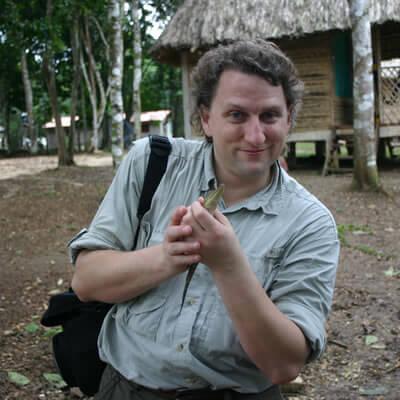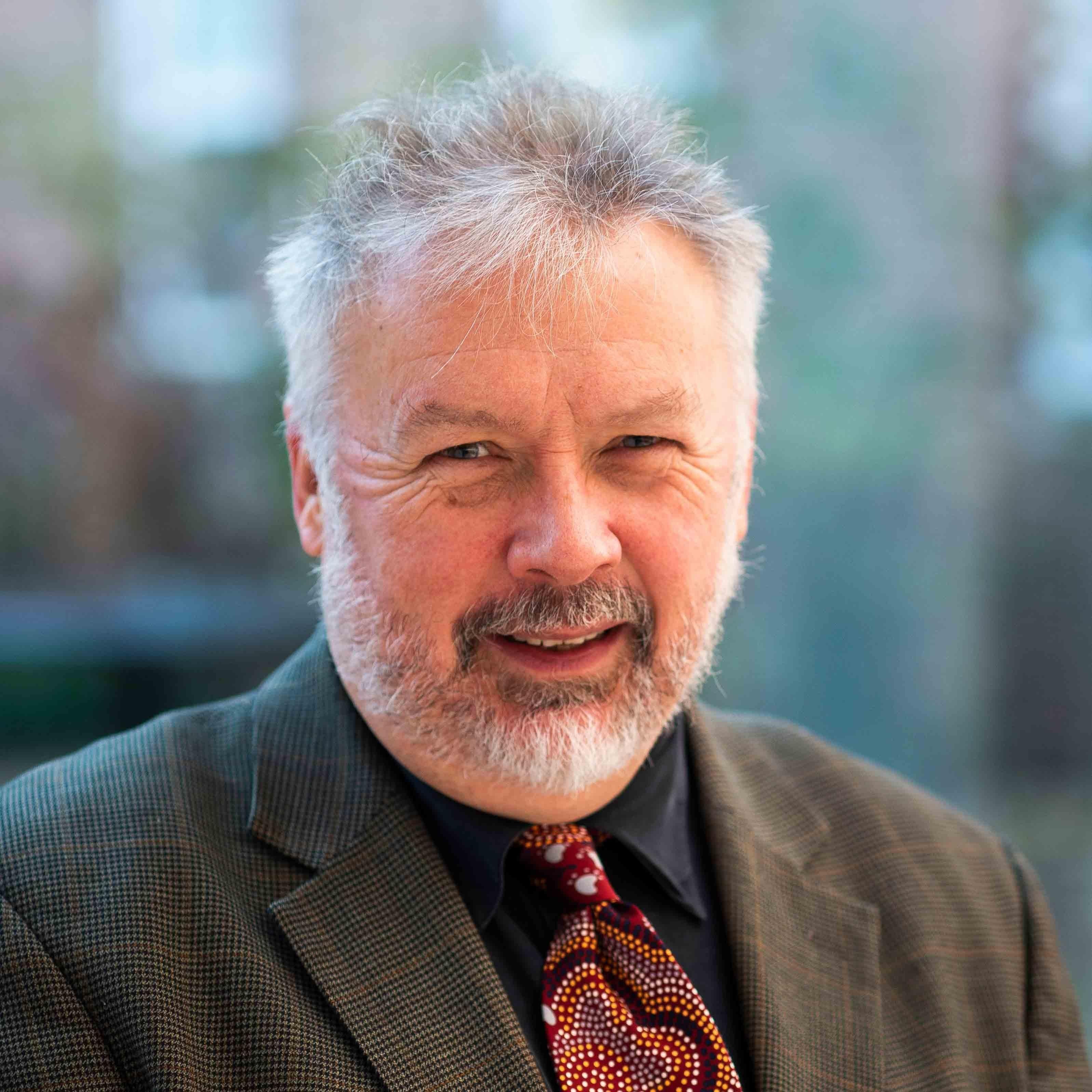Science and Global Change
Using science to understand and respond to the global climate crisis
Introduction
Global climate change, biodiversity crises and similar phenomena already impact our lives and will increasingly do so in the future.
Science and Global Change (SGC) uses scientific practice to explore global climate change and its impacts on human society, technology and security. Exploring the interactions of the Earth's systems, students examine:
- The nature of science, critical thinking and the interaction of scientific knowledge and the public;
- The causes and implications of global climate change and biodiversity changes across the span of time; and
- The means by which we can build a more resilient society to survive and reduce the impacts of these changes.
SGC prepares students to understand the changing conditions of the future and fosters critical thinking about the world around us. Students of all majors will benefit from an understanding of how science works, how the physical and biological environment is changing, and what our options are to build a more resilient society.
Colloquium and Lecture Topics
- A look at logical fallacies
- Science vs. Pseudoscience
- Why climates change, and how we know that is (partially) our fault
- The value of the biosphere
- Who pays for science?
Other Learning Opportunities
Students in SGC will observe evidence of global climate change both in class and through multiple learning opportunities outside the classroom. Past excursions have included:
- Travel to New York City and the American Museum of Natural History;
- Exploring the Smithsonian Museums;
- Visiting the Smithsonian Environmental Research Center and the Horn Point Laboratory; and
- Volunteering at Kenilworth Aquatic Gardens.
As part of the sophomore practicum, students will learn from and work closely with researchers, educators and practitioners of any STEMM (Science, Technology, Engineering, Mathematics, Medicine) field. Students have:
- Held internships in various labs at the National Institutes of Health, NASA and the Smithsonian Institution;
- Helped to construct wind turbines for communities in the Andes; and
- Developed educational experiences for the Annapolis Maritime Museum.
Curriculum Overview
Over the two-year program experience (four semesters), students will complete 9 credits of supporting courses that will count toward their SGC Scholars citation. In most cases, these will also fulfill General Education requirements. Note that your Scholars courses—colloquium, practicum and supporting course(s)—will generally be in addition to any courses you take to satisfy major requirements.
The following table represents a typical two-year curriculum, but individual schedules may vary. Details about courses and requirements can be found on the SGC Citation Checklist.
| SEMESTER | COURSES | CREDITS |
|---|---|---|
| Semester 1 | CPSG 100: Colloquium I | 1 credit |
| Semester 2 | CPSG 101: Colloquium II | 1 credit |
| Semester 3 | CPSG 200: Colloquium III | 1 credit |
| Semester 4 | CPSG 230: Internship; or CPSG 240: Service Learning or CPSG 250: Research; or CPSP 359G: Advanced Research (DSSP); or CPSP 359S: Discovery Research (DSSP) |
1-3 credits 1-3 credits 1-3 credits 1-3 credits 1-3 credits |
| Semester 1, 2, 3, or 4 | Citizenship and Diverse Perspectives (CDP) Course (DVCC 3 or DVUP) | 3 credits |
| Semester 1, 2, 3, or 4 | Supporting Course A (var. Gen Ed) Supporting Course B (var. Gen Ed) Supporting Course C (var. Gen Ed) |
3 credits 3 credits 3 credits |
Sponsoring College
Office Address
1216 Centreville Hall
Office Phone
Faculty


News and Notes, Etc.
The New York Times, The Case of the Tiny Tyrannosaurus Might Have Been Cracked, Oct. 2025
The Washington Post, One of science’s biggest dinosaur debates may finally be settled, Oct. 2025
NPR's All Things Considered, Scientists thought this fossil was a teen T. rex. Turns out it's a new tyrannosaur, Oct. 2025
Maryland Today, What’s Real and What’s Not in ‘Jurassic World Rebirth’: A UMD Paleontologist Explains, July 2025
Science and Global Change News
2025 Citation Class Honored at Awards Ceremony
College Park Scholars celebrated the best and the brightest of its most recent Citation class at its annual Citation and Awards ceremony recently. The 2025 Citation class, already packed with leaders in their academic fields of study and on campus, emerged undaunted by the challenges as one of the last high school classes during the pandemic, as productive community members in Scholars and at the University of Maryland.
First Steps at Fall Welcome
There were plenty of “Boots on the Ground” for move-in at the University of Maryland last week, but no need for fans in the hands, given the unseasonably refreshing 75-degree weather.Two College Park Scholars programs were captured in action on Service Day, a few days before classes began. Science and Global Change and Media, Self and Society had university photographers visit their service sites to see their impact in action. Read more about the more than 25 year old Service Day tradition by clicking here.
Adventures in the Animal Kingdom
When Claire Quinn (B.S. ’15, biological sciences) graduated from the University of Maryland, she wanted to find a job where she could share her passion for biology and conservation and make a real difference in the world.
What’s Real and What’s Not in ‘Jurassic World Rebirth’: A UMD Paleontologist Explains
“Jurassic World Rebirth,” the latest installment in the blockbuster movie franchise, is out Wednesday, going back to its roots with a high-stakes adventure to a remote tropical island. And streaming on PBS now is the newest iteration of "Walking With Dinosaurs,” a BBC series that brings viewers into the lives of six species, mixing footage of scientists on digs around the world with animated sequences imagining how they lived.
A Terp Fossil Hunt, Just Down the Street
Liam Driver ’27 shouted in excitement as he picked up a shard of rock out of orange clay and ironstone on an exposed gray hillside.As his classmates gathered around him, he held out his hand, revealing a sliver of bone in the center of his palm. “That blueish part is what gave it away” as a fossil, he said.It might have been part of a now-extinct species of lungfish 115 million years ago that, per its name, could also breathe outside of the water. It’s one of many animals and plants that once thrived in a lush early Cretaceous waterway that’s now an unassuming excavation site, tucked away at the end of a long drive of warehouses and office buildings in Laurel, Md.
Scholars Emerge as Finalists for Maryland Medallion Society Awards
The Maryland Medallion Society is a community of students who have shown exceptional leadership and integrity. These students are also the finalists for the University’s top two prestigious awards: the University of Maryland Model Citizenship Prize and the Wilson H. Elkins Award.This year, several College Park Scholars alumni were finalists for the top two awards – Jhennifer Celestino Alva (Global Public Health), Lily Fleischmann (Public Leadership), Sarang Han (Science and Global Change), Erika Holdren (International Studies), Abigail Manga (Public Leadership), and Kaitlyn Zhou (Public Leadership).


